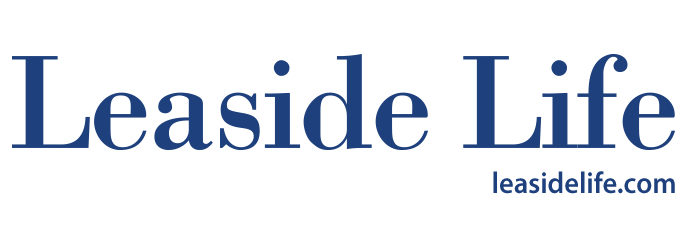
Robbie carefully measures out the spinach so that he gets the portions correct. Debbie studies the salad dressing recipe. Sandy and Kerrie help with dessert.
“We cook, we learn things, we sing,” says Sandy.
They are members of the Community Kitchen assembled in the basement at Leaside United Church and have come from as close as North Leaside and as far away as Finch and Sheppard.
“I cook for myself now,” says Robbie. Debbie adds, “I don’t eat out as much. That saves money and I know it is healthier.”
Community Kitchen members are adult students associated with the literacy program at Frontier College, which operates a variety of literacy programs, including an Independent Studies Program in Toronto for people with cognitive or developmental challenges.
Once a month the group gathers over dinner to learn life skills related to cooking and nutrition. An equally important outcome is their interaction with each other and volunteers.
The program was started by Bonnie Mills of Hanna Rd., a volunteer tutor for 15 years who noticed that most of her students were often alone or isolated from the community, particularly once they graduated.
She and her husband John talked with Angela Bisby, program coordinator at Frontier College, and six years ago set up the one-of-a kind program. Volunteers were recruited from the community.
Community Kitchen night has now become equally special for the volunteers, who mostly live in Leaside.
“We learn far more from our time with the group than we ever teach them,” says Airdrie Rd. volunteer Pat Lute. “There is absolutely no ego in the group, no one complains, everyone accepts each other; they are just happy to be together.”
Joan Bell, who assists with shopping and often brings poetry or music to the group, echoes those sentiments: “I initially got involved in the Community Kitchen because I’ve always believed it was important to help others. But I have received much more than I have given. We have become a family.”
On the last meeting before the summer break last month volunteer John Clark led the group through a review of the past year’s activities.
“What did we like doing last year?” he asks. The list is long and includes cooking, measuring ingredients, learning what to do in a crisis (i.e. the ice storm).
Robert recalls the presentation on how to shop for groceries and how many stores put the more tempting items in the first aisle so you buy them first.
“Now I always start my shopping in the last aisle,” he says proudly.
The close-knit group of eight members and 10 volunteers enthusiastically recognizes birthdays and special events, such as Miriam’s participation this summer when she will be bowling at the Special Olympics. Her friend in the group, Robbie, plans to attend to cheer her on.
“We also remember when Edward died” last winter says one member. “We all came to the funeral and will always remember him.”
The program is limited in numbers for safety reasons and the size of the kitchen. Anxiety issues faced by some attendees means that the program is kept low key, without much publicity or outside attention.
Most people don’t even know it takes place even though it has made a tremendous impact with those who faithfully attend each month.
Mills is thrilled at how it has developed over the years. She is insistent that everyone should be credited for its success.
“While the Community Kitchen at first may have been the idea of one or two people,” she says, “it quickly became a group project where all members contribute in their own way to the life, work and fun of the program.”


